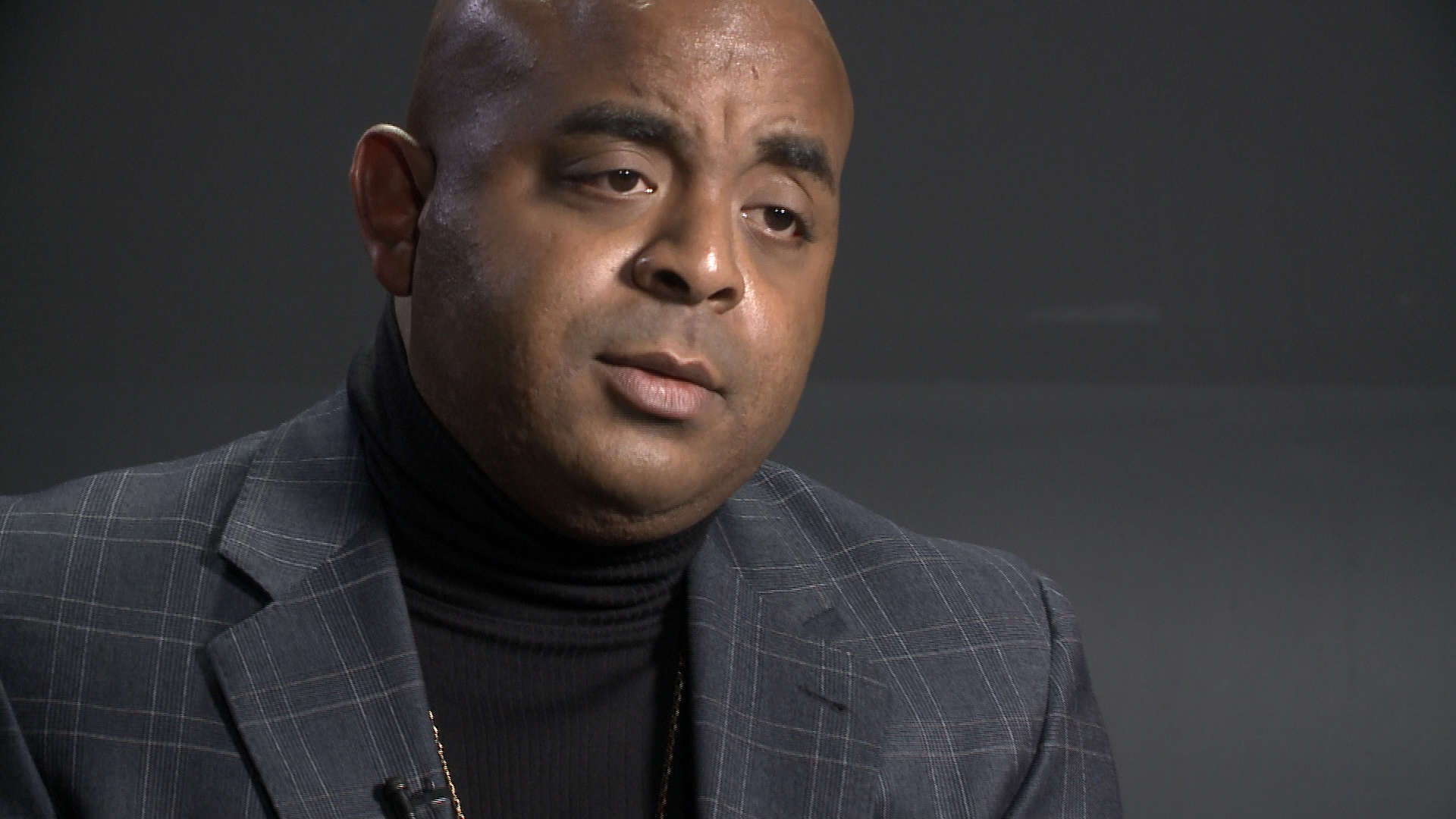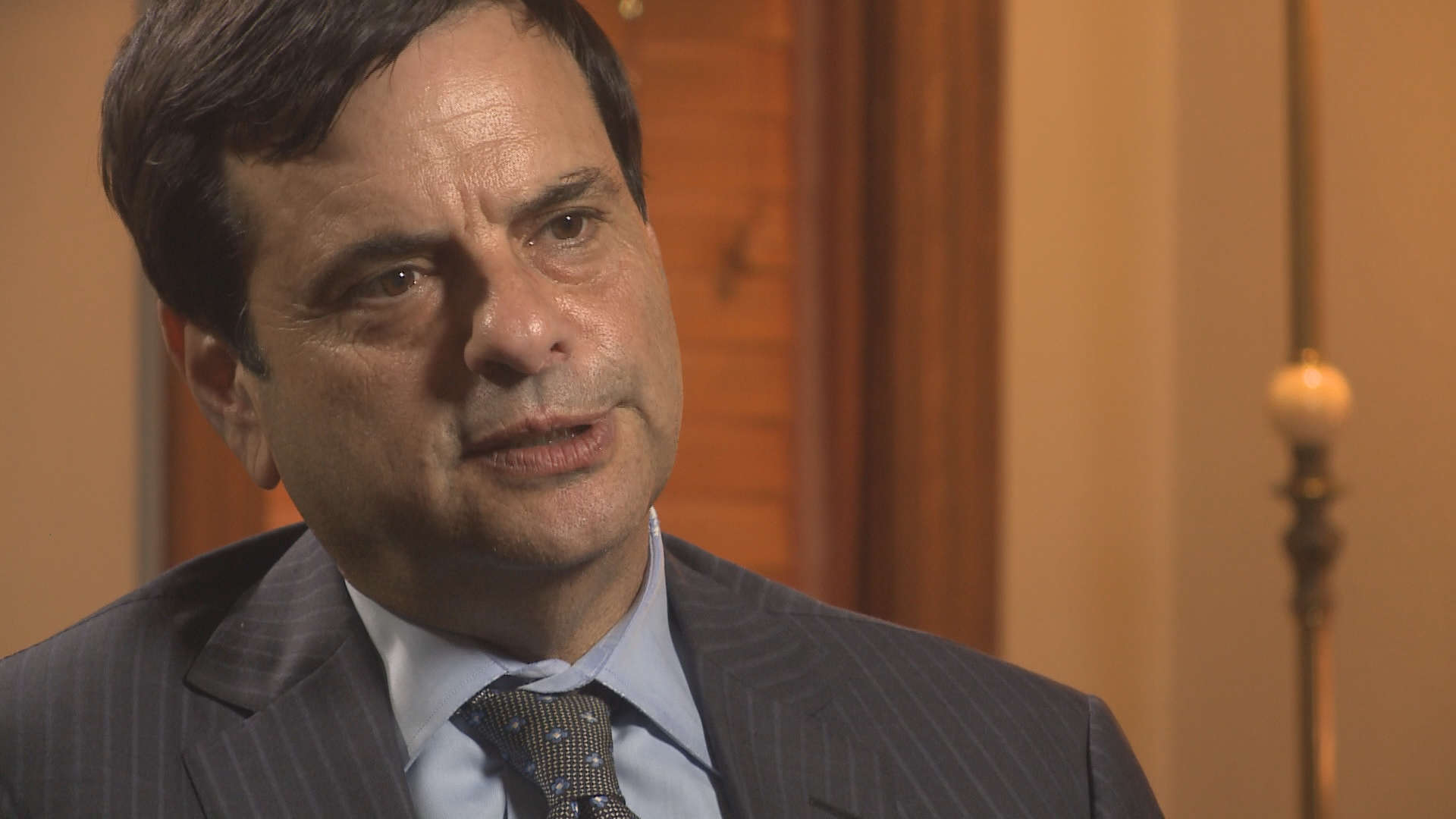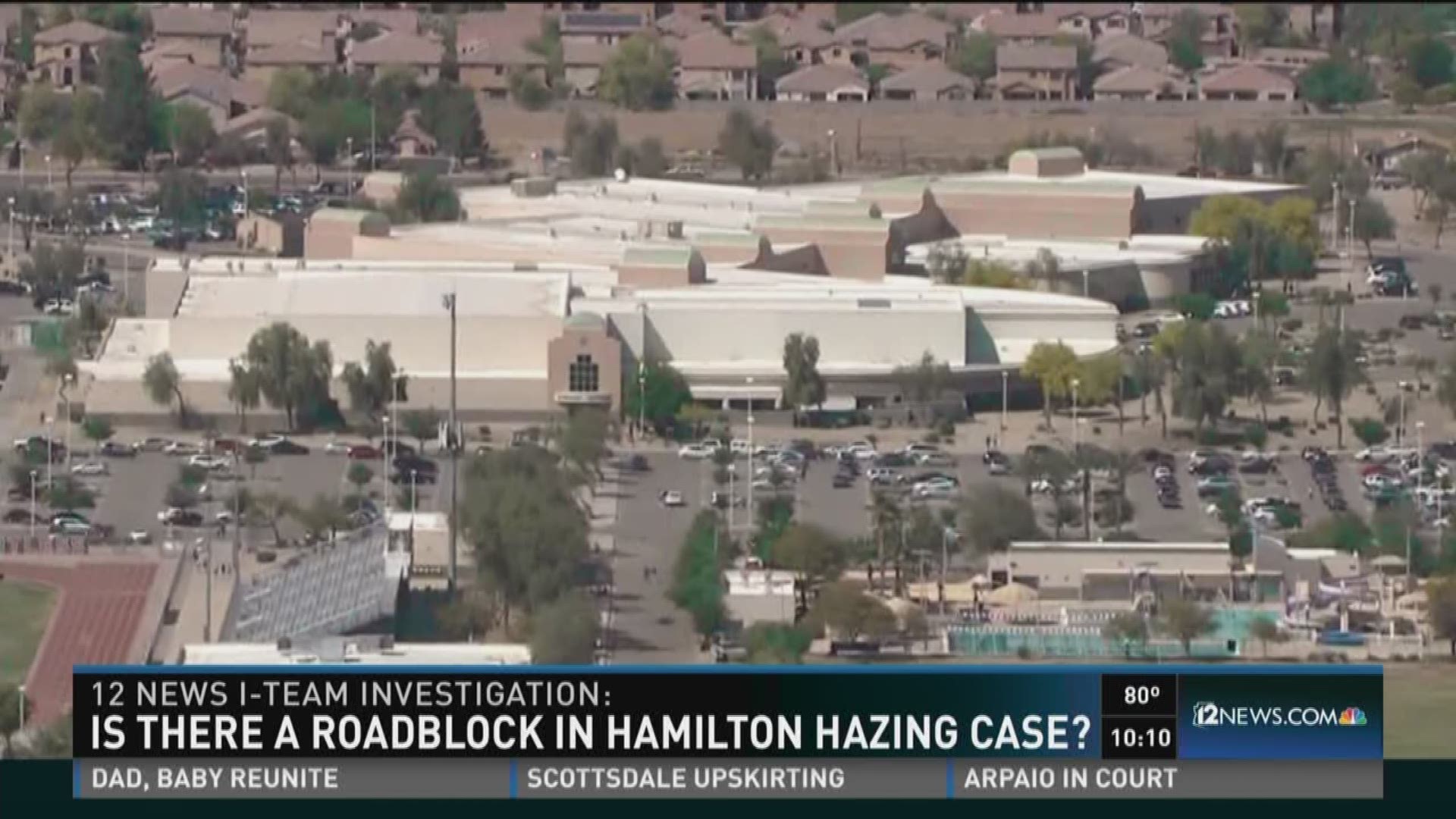This story was part of an investigation that was originally published Nov. 20, 2015.
In politics, when someone challenges who you are in the most egregious way -- accusing you of being a child predator – the fallout can be devastating.
Former Phoenix Mayor Phil Gordon knows that all too well. For the first time, Gordon is revealing publicly how his private and personal life was nearly destroyed by a lie told by a man who wanted to be mayor.
For months in 2008, Gordon lived in fear that a rumor or an accusation would go public and, despite his innocence, he’d be ruined.
Fast forward to 2015.
“Certain things that you bury, which I always thought was the best way to do things, will, even if they’re not consciously there, they hold you back and you need to let it out,” said Gordon.
Gordon, for the first time, is letting it out.
A tenuous year
It was the spring of 2008 when Mayor Gordon went toe-to-toe with Maricopa County Sheriff Joe Arpaio over his crime sweeps targeting illegal immigrants.
On March 28 of that year, Gordon spoke at the Cesar Chavez Luncheon. He says his staff had concerns about the speech he wrote and feared if he said what he wrote, he could become a target.
But that didn’t seem to faze Gordon, a seasoned political pro.
During his speech, he read a statement the sheriff previously made: “We lock up murderers, we lock up everybody. We’re here for crime suppression and we’re going to lock up everyone.”
Gordon capped it off telling the audience, “But his posse didn’t lock up murderers, they locked up brown people with broken tail lights.”
On April 4, 2008 Gordon wrote a letter to Michael Mukasey, then attorney general of the United States, asking him to investigate possible criminal and civil rights violations by Sheriff Arpaio.
Gordon’s attorney and former U.S. attorney for the District of Arizona, Paul Charlton, let the FBI know he was concerned for Gordon, believing that Arpaio "might seek to retaliate against Mayor Gordon,” according to an April 25 letter he wrote to the bureau. Charlton based his belief on the sheriff’s "prior history of initiating criminal investigations against his political opponents."
Meanwhile, Gordon says fear and intimidation were running rampant everywhere he turned.
“The extremists, individuals that came to my son’s house on his 30th birthday on the block in Nazi uniforms, the neo-Nazis protesting, ‘Your father is a traitor and your father should be killed,'” said Gordon. “It was just scary.”
On April 16, 2008 Gordon delivered his annual State of the City Address, citing his concerns for what he termed “the sheriff’s profiling and harassment of Hispanics in the community.”
The lie
It would only be a matter of days before Gordon would learn Sheriff Arpaio initiated a criminal investigation into the accusations. But Gordon had relatively no clue what was in store for him.
It was an accusation by community activist Rev. Jarrett Maupin. An accusation so “despicable,” according to Gordon, his stomach dropped.
“The allegation is Jarrett Maupin has a tape that showed me having sexual relationships with a young child,” Gordon said he was told.
At least that’s what citizen Maupin reported to the Maricopa County Sheriff’s Office. MCSO’s 901-page report in this matter indicates in two places that Maupin had contacted Sheriff Arpaio “personally.”
Maupin refutes that, saying, “I've talked to the sheriff about a lot of things, but nothing about this in particular.”
MCSO spokesperson Lisa Allen asked the sheriff and wrote in an email, “He does not recall, but says it’s possible.” Allen further added that the sheriff said it’s also possible that Maupin contacted the chief deputy at the time.
“I had a young son, and you know, made my whole life helping people and it just … all those emotions, I was sick, I was scared,” Gordon said.
Maupin wore a wire for MCSO
According to MCSO’s investigative report, Maupin was provided with two recording devices by MCSO and on Friday, April 18 went to the house of Gregory Coleman, an aide to City Councilman Michael Nowakowski. The intention was to surreptitiously capture on tape a conversation about supposed incriminating evidence against Gordon in Coleman's possession.
It was allegedly a box containing video, photos and documents showing Gordon engaging in sex acts with an underage boy.
According to transcripts of a recording from the wire Maupin wore, he was instructed by a detective how to use the recording devices and to call MCSO as soon as he got to Coleman’s door.
While Maupin was driving to Coleman’s house, he’s heard on the recording saying, “With all this sh--, I should be a cop for real.”
On the recording, Maupin and Coleman are heard talking about “the stuff” Coleman supposedly has.
MAUPIN: But if we’ve brought the stuff out, what would happen to him?
COLEMAN: Nothing, but it just ain’t the time.
Later, Coleman tells Maupin, “But you should never have talked to Joe Apaio about this.”
MAUPIN: I don’t cut deals.
Maupin asks Coleman if he can at least “see the stuff.” Coleman says not until he deals with a person named Damien. Coleman tells Maupin Gordon’s got people who love him.
MAUPIN: They going to support Phil beyond the gay relationship with a boy?
COLEMAN: Yes they would.
On the recording, Coleman appears reticent to give the supposed evidence to Maupin, who he thinks would give it to Arpaio so he could use it as “revenge” against Gordon.
Coleman is heard saying Arpaio is angry because Gordon “kicked his butt to the curb two or three times.” He makes mention of a breakfast and says, “He murdered the man at the breakfast,” and tells Maupin Gordon “cut Arpaio’s throat.”
Coleman says Gordon is his friend and he also disagrees with Arpaio and agrees with Gordon when it comes to the crime sweeps.
MAUPIN: If I took this to the sheriff, afterward as you know …”
COLEMAN: First thing they would do is try to figure out if this boy’s 17 and under, cause if the boy’s really 17 and under, based on the documentation that I have. The boy was 18, but if … if it … if the sheriff can miscalculate, which he will just to say he was 17, he would.
Coleman later tells Maupin, “You show, show me $2,500 right now and I’ll let you look at the box.”
MAUPIN: And you’ll give me the stuff?
Coleman says for $2,500 in cash he will let Maupin look at it. Maupin says he wants the stuff for justice because “you can’t go around breaking laws and having sex with children.”
Maupin asks him where “the stuff” is.
COLEMAN: I have it, I have every bit of it.
MAUPIN: Greg, come on, you got the box here.”
COLEMAN: I don’t.
Maupin drove away and called the MCSO detectives, and can be heard on the recording telling them the following:
“Hey, he has it at his house. The only way he's going to let me see it is if I had the money and he admitted on the tape to me that the boy when this … huh? That when this happened, the boy was ah … 17 years old, so I'm coming back. He won't give it … he won't ... you know, he's all saying that this ... he won’t give it to the Sheriff cause I told him I was going to take it to law enforcement and he said, 'Well you ain’t taking it to the police so you must be taking it to the sheriff, cause the police are not going to do anything with it.'
“I said, 'Well I and you know … you know Phoenix PD better than me and if they ... they'll cover it up, you know, I got to take it to law enforcement.'
“So he's saying now that he wants to shop it around which is complete bullsh-- … so frankly I think if he's willing to shop it around, well then he must not be concerned about it being a secret.”
Testing Maupin’s character
According to the MCSO report, later that night two detectives went to Coleman’s home, telling him they were there to investigate a possible crime. They wanted to know if he had any information about this possible crime.
The report shows Coleman told them he was testing Maupin’s character and the whole story was completely false.
Coleman said there was no box and that Maupin is not telling the truth. He claimed Maupin was trying to get back at the mayor for getting him kicked off the ballot the year before.
Then Coleman clammed up and decided he didn’t want to talk anymore before consulting with an attorney.
Gordon notified on a Saturday
Records obtained by 12 News show it was Saturday, April 19, 2008 when Phoenix City Manager Frank Fairbanks informed Gordon an assistant chief from MCSO called him and told him “he had information on the mayor that had come from an informant.”
Records further show on Monday, April 21, Councilman Nowakowski told the mayor’s chief of staff, Ruth Osuna, and senior deputy chief of staff, Bill Scheel, about a conversation he had with his council aide, Gregory Coleman.
Nowakowski said Coleman stated that on Friday, April 18, Maupin came to Coleman’s house and asked if he had any “information” that could be used against the mayor. According to records, Coleman then informed Maupin he did not have any information and that he could get in trouble for even speaking with him.
Nowakowski told Osuna that later that night, Coleman was visited at his home by two deputies from MCSO’s political corruption unit. The record shows the deputies asked Coleman if he had “a box of information on the mayor of Phoenix.”
Coleman was said to have told them he did not and asked them if they had a warrant. They did not, and they left.
Still, for Mayor Gordon, this supposed “box of information” was his living nightmare.
“I had the sheriff coming at me, which then is, you know, jail, prison, you start to imagine the worst,” he said.
Ultimately, the sheriff's office would play a role in clearing Gordon of the allegations, but during the investigation, Gordon feared his innocence would be little protection against the powerful political rival he had in Arpaio.
When asked to comment on the investigation for this story, Arpaio declined to be interviewed, but spokesperson Lisa Allen sent a statement, which reads in part:
"If, as you suggest, Mr. Gordon is blaming Sheriff Arpaio for conducting the investigation in the first place, I would remind Mr. Gordon that Sheriff Arpaio not only graciously kept quiet as to the embarrassing nature of the charges, but that the Sheriff’s Office also arrested the man who falsely accused him. Rather than holding a grudge, Mr. Gordon should be grateful for the fine work that exonerated him and help to put his accuser in jail.”
Public records request filed by MCSO
On April 24, 2008 MCSO filed a public records request with the Phoenix city manager.
The letter states that MCSO has initiated an internal investigation. The letter seeks that the city turn over all of Mayor Gordon’s and City Manager Fairbanks' emails from Nov. 1, 2007 to April 24, 2008, as well as all of Gordon’s administrative staff’s emails, Phoenix Police Chief Jack Harris’ emails, Mayor Gordon’s meeting calendar and his cell phone records.
One day later, Gordon said he had breakfast with Bishop Henry Barnwell, Sr., an acquaintance of Rev. Maupin and Gregory Coleman. Gordon says Barnwell told him Coleman told him he didn’t have any evidence of misconduct on the part of the mayor.
Gordon goes to the FBI
Gordon wanted to go to the Federal Bureau of Investigation to investigate his accuser, but was warned in doing so the accusation could potentially be made public.
“I was not only innocent, but this was an assassination attempt,” said Gordon, referring to the potential political fallout.
It was a risk Gordon insisted on taking.
“The FBI came in, put me under oath, had me swear when I was answering the questions that I was truthful,” said Gordon. “I had no hesitation on that.”
Of his interaction with the FBI, Gordon says they were not forthcoming with information, only saying they were investigating.
As of this report, the FBI continues to withhold its records related to this case, but sources confirm agents did interview Maupin as part of their investigation.
“From what I’ve seen with my own eyes”
Several months would go by with Maupin still claiming to MCSO visual evidence of Gordon having sex with an underage boy existed, and that he'd seen it.
Records show Maupin told MCSO detectives, “From what I’ve seen with my own eyes and people on my staff have seen with their own eyes, it is the sort of thing that would be, you know, like a crime against a child.”
Maupin said he saw two clips of Gordon having sexual intercourse with an underage boy only known as “Ruben” and photos of Gordon engaged in sex acts with the boy.
Ruben, Maupin said, was a white male, possibly Hispanic with blonde hair. Maupin said Ruben’s hair was short, “You know like white guys.” And that he didn’t notice any visible scars or tattoos on the boy.
He initially told MCSO detectives that Ruben stood about 5 feet, 10 inches tall and weighed 130 to 140 pounds.
But later in that same interview, Maupin’s physical description of Ruben’s height would be inconsistent with what he said earlier, records show. He said Ruben was 5-foot-4 to 5-foot-5 and weighed 130 to 150 pounds.
With regards to the photos Maupin said he saw, he told MCSO detectives they were not professional photographs. He described them as half the size of 8 1/12-by-11 photos, and he offered up that the photos had not been tampered with.
According to the MCSO report, Maupin also claimed he saw emails between Gordon and Ruben, and the email messages contained statements sent by Gordon such as, “I’d like to lick your pubic hairs.”
Maupin told detectives he thought the sex act was filmed about seven years before, but said Gordon and Ruben were “still corresponding and everything like that.”
Maupin told MCSO detectives that Gregory Coleman had allegedly stolen that “box of information” with all of this evidence of criminal conduct against the mayor before he was fired from Gordon’s campaign.
Months later, an indictment that was sealed at the time shows, “On or about Sept. 16, 2008” Jarrett Maupin “did knowingly and willfully make a materially false, fictitious and fraudulent statement that he had knowledge and proof of criminal activity” on the part of Mayor Gordon to the FBI, “when in truth and fact, as Maupin well knew, he had no such knowledge or proof.”
MCSO seeks assistance from FBI, arrests Maupin

On Nov. 19, 2008 the MCSO sent the FBI a letter asking for any information it had on its case against Jarrett Maupin.
Maupin was arrested by MCSO the following day, with the FBI special agent who worked the bureau's case present for the takedown at a Phoenix restaurant.
MCSO says, during the course of its investigation, “None of the items of evidence described by Maupin to indicate Gordon participated in criminal activity were located or proven to exist.” And that Maupin fabricated portions of the reports he made to the MCSO and gave inconsistent statements.
“Ruben” was never identified.
What’s more, according to the MCSO report, when confronted, Maupin admitted to the MCSO that he knowingly provided the fabricated story as facts to them.
Maupin was booked into the Maricopa County 4th Avenue Jail on one count of false reporting to law enforcement.
The MCSO report says Maupin apologized and stated he did not see the videotape in question and indicated he was untruthful when he told the MCSO he had seen it with his own eyes. Maupin stated he gave the story “wings and legs” by saying he actually viewed the videotape in question.
Maupin changes plea in federal case
After the FBI’s investigation concluded, Maupin initially entered a not guilty plea, but later pleaded guilty to making a false statement to a federal agent about Mayor Gordon.
The date was April 28, 2009 when Maupin appeared before U.S. Magistrate Judge Lawrence Anderson and the FBI agent he lied to at the Sandra Day O’Connor U.S. Courthouse to change his plea to guilty. Here’s a partial transcript from the court audio recording.
JUDGE ANDERSON: And in 2008, following your 2007 political campaign against Mayor Gordon and eventual removal from the ballot, you looked for a way to hurt the mayor politically, correct?
MAUPIN: Yes, Your Honor.
JUDGE ANDERSON: And you first falsely informed a local newspaper reporter that you had evidence of criminal conduct on the part of the mayor, Mayor Gordon, right?
MAUPIN: Yes, Your Honor.
JUDGE ANDERSON: In the spring of 2008, you spoke with representatives from a local law enforcement agency, correct?
MAUPIN: That is correct.
JUDGE ANDERSON: On Sept. 16, 2008 you falsely informed agents from the FBI that you had seen evidence, including documents, photographs and video of Mayor Gordon engaged in criminal activity, correct?
MAUPIN: Yes, Your Honor.
JUDGE ANDERSON: You also hand-wrote a statement further describing your false allegations in detail, correct?
MAUPIN: Yes, Your Honor.
JUDGE ANDERSON: Today you fully and completely repudiate your Sept. 16, 2008 statement to the FBI, correct?
MAUPIN: Yes, your honor, correct.
JUDGE ANDERSON: You acknowledge here in open court that you lied to FBI about alleged criminal conduct of Mayor Gordon, correct?
MAUPIN: Yes, Your Honor.
JUDGE ANDERSON: In truth and in fact, there was no video, no video, no photographs, no documents and in fact no crime involving Mayor Gordon, correct?
MAUPIN: Yes, Your Honor.
JUDGE ANDERSON: And you engaged in this conduct in an effort to smear Mayor Gordon politically even though you knew at all times there was no truth to the allegations and statements that you made to the FBI, correct?
MAUPIN: Correct.
JUDGE ANDERSON: And when you talked to the FBI you talked to them here in Phoenix, right?
MAUPIN: That is correct.
JUDGE ANDERSON: And you further recognize and acknowledge that you wasted the time and the resources of the FBI agents and other FBI personnel for your own political purposes in giving false information to them about Mayor Gordon, correct?
MAUPIN: That is correct.
Maupin catches a break
Maupin would be placed on federal probation for his crime because Gordon, the victim, was asked whether he wanted Maupin to serve prison time or be placed on probation. Maupin could have been sent to federal prison for five years if the maximum sentenced was imposed.
However, Gordon says he did not have it in his heart to send the young Maupin to a federal penitentiary. After all, he knew Maupin’s grandmother.
“I’ve seen too many people carry poison inside,” Gordon said. “The hate certainly at the time, all the emotions from being sick to hate, but I didn’t want that hate to poison me. And again, he was out of my life and I was trying to let that wound – would never totally heal, but let it scar over. So, I figured OK, let’s just do that and let him go on with his life and then I can go on, and maybe that’s my upbringing from my mom and dad and grandparents.”
To this day, Gordon says he has no regrets for not sending Maupin to prison.
“At least I can sleep at night saying I didn’t put somebody … I can’t imagine anyone being in prison today as bad as conditions are and doing it,” he said. “Do I believe he’s a liar? He certainly was a liar.”
In 2011, Maupin would violate the terms of his probation. However, he successfully completed it last fall.
At the time, Maupin was a 2014 Democratic Congressional candidate hoping to get elected to represent the 7th Congressional District. He was still on probation, and as a convicted felon, he could not even vote for himself.
Maupin sits down for an on-camera interview

Maupin was asked how he could, as a minister, make up a story like that. He insisted throughout the interview that he was not the author of the accusation and that Gregory Coleman was to blame.
To this day, Maupin maintains Gregory Coleman came to him with information, “swore to God that the information was true and accurate and felt like he needed to tell me and I reported what he told me.”
We tried to locate Coleman to ask for a comment, but were unsuccessful. We also reached out to Phoenix City Councilman Michael Nowakowski’s office for help, but they too did not know where to find Coleman.
Following his arrest by MCSO, Maupin said he felt foolish.
“I felt like I had learned from the old adage not to take things secondhand or third hand and report them,” he said. “I think the Ten Commandments say something about bearing false witness. And certainly I think some of that is what occurred here.”
He concedes he took what someone said to him over a period of time and insisted it was true and then reported it as fact.
“Anytime that happens, it’s a mistake,” he said.
Maupin says he was certainly motivated to take the plea agreement offered by the U.S. Attorney’s Office.
When asked if he did this to Mayor Gordon to smear him politically, Maupin said, “That’s what’s contained in the four corners of the plea agreement.”
Maupin says he considers himself a champion for people of color and people in the civil rights community.
“We all make mistakes,” he said.
He says he’s no different from most people.
“I'm not guilty of anything more than Martha Stewart or any number of people making a false statement to a federal entity,” he said. “And most of us probably do that on our income taxes every year. I think the difference is they had the ability to attempt to politically lynch me. And I am a survivor of an attempted political lynching.”
When asked if he thinks about the heinous crime he accused Gordon of and his own personal integrity, Maupin had this to say:
“I don't think about it often. You know, we fall down but we get back up. If we knew the extent of everyone else's mistakes, I don't think we could look each other in the eye. But no, it doesn't hover over my head like a cloud.”
The bottom line as far as Rev. Jarrett Maupin is concerned: “I filed a false report, somebody came to me with bad information. I gave them the information that that person gave me and I paid a terrible price for that.”
We asked Maupin what he would say to former Mayor Gordon if he had the opportunity. This was his reply:
“I would say Phil, you've known me most of my life. You know my parents, you know my grandparents. I'm very sorry. I'm very sorry for what was told to me by someone who I trusted, by someone who worked for you and your colleagues. I'm very sorry that they came to me with that information and I deeply regret that I parroted what they told me to law enforcement. I'm sorry because that's my role in this. I told law enforcement what somebody told me and I'm very sorry for that.”


